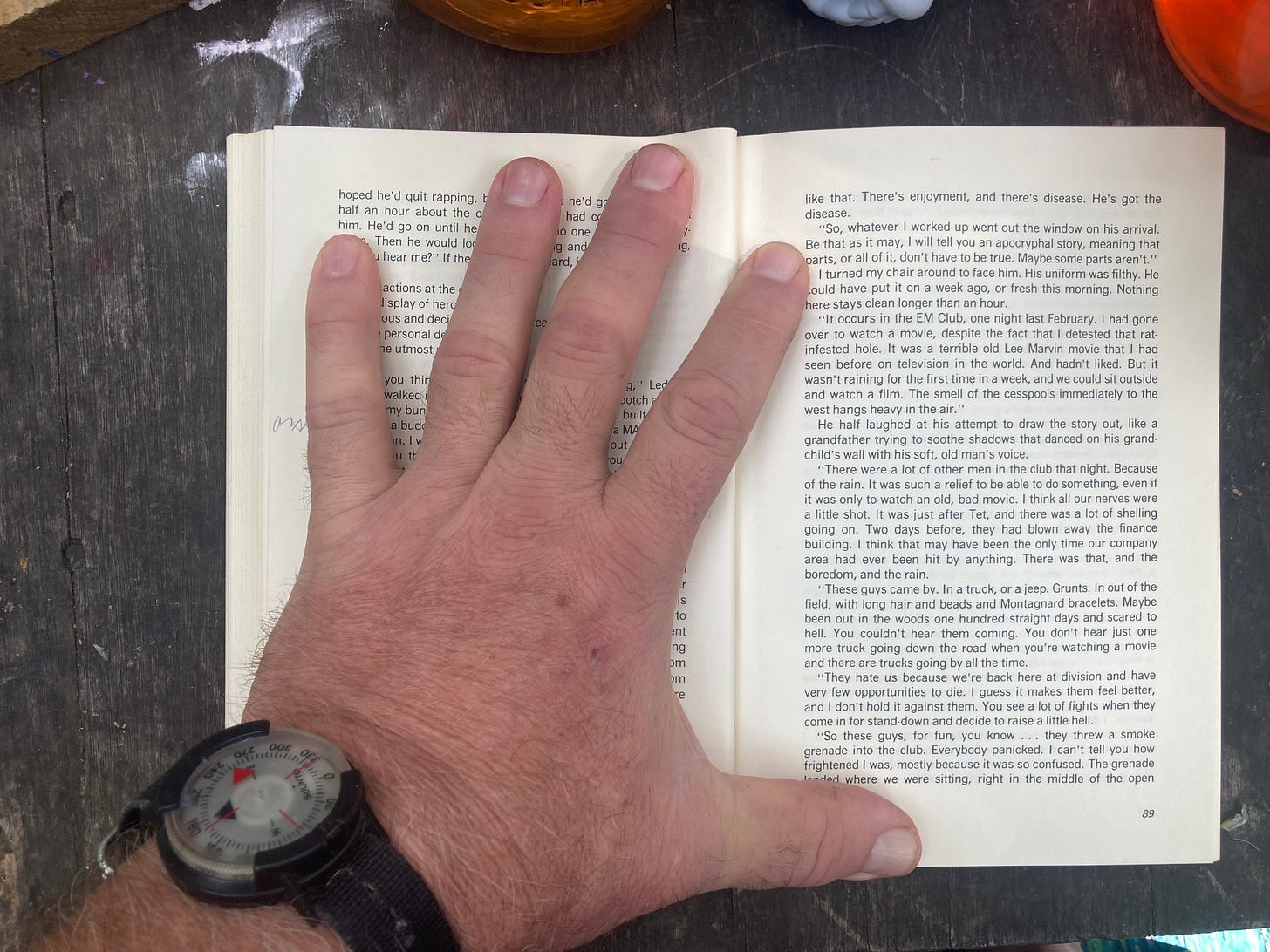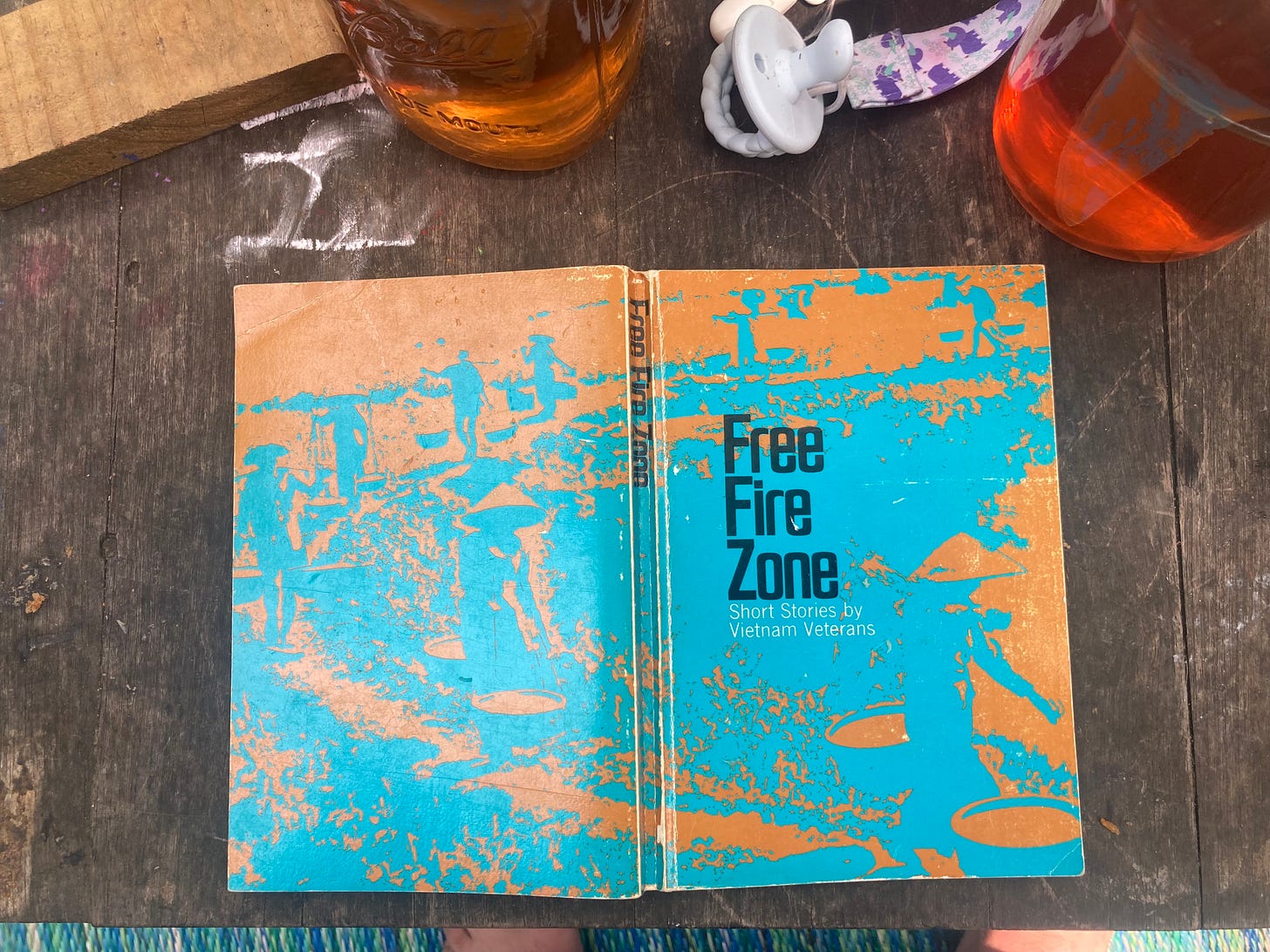The University of Massachusetts, Amherst, is processing 60 linear feet in 91 boxes of William Julius Lederer’s legacy. Libraries around the world hold his at least 5 books touching on mainland Southeast Asia.
The treasury of the English language has circulated his coinage “the ugly American” since his 1958 book of that title and the 1963 movie with Marlon Brando. By contrast the legacy of James Aitken so far as I have found lies solely in his story Lederer’s Legacy in the Free Fire Zone anthology of Short Stories by Vietnam Veterans.
That book’s Index of Writers specifies that James achieved the rank of Specialist 4, one hair below corporal. He was a radioman, a technician, so he may have risen from recruit through the 3 ranks of private or he came in to the Army with a college degree that landed him directly as Spec-4.
William had entered the Navy without a high school degree but rose to Annapolis on his merits as an enlisted sailor and ended his 30-year career as a captain, equivalent to an Army colonel, reporting to the Commander in Chief of the Pacific, viceroy of the president of the United States of America. So, yeah, U Mass is archiving 96 feet of William and I haven’t found a word about James.
Except in what is important about him, this work of art he contributed to this 1973 anthology from Americans home from that war. Wayne Karlin, Basil T. Paquet, and Larry Rottmann placed a sentence from James’ story Lederer’s Legacy as an epigraph to the whole book, facing the Index of Writers:
And, of course, the nice thing about the story is that now you have heard it, what happened is part of you, too. [206]
Nasty. True.
Hey the editors credit James Aitken under that quotation as Jim. Maybe they knew him.
Maybe my friend Wayne can tell me why Jim named his title character the same as one of the best-known American authors on Viet Nam that decade, prolific in just the kind of airport spin-rack books James Aitken shows his characters reading from the PX. Or I could read the story, then ask.
Here is the whole paragraph Wayne and the other editors seized that sentence from:
“She did die,” he said, ‘about two days later. She was all messed up inside, and I don’t know whether we helped her along or not. I know that it had to be in some way my fault, and it is something that has become part of me. And, of course, the nice thing about the story is that now that you’ve heard it, what happened is part of you, too. [92. Italics mine]
Thanks for that to the narrator Chassen, the character Lederer, the author James Aitken, the man Jim, and editors Wayne, Basil, and Larry. Thanks for that dreadful anecdote about a slight young woman trampled by Army clerks at division headquarters when infantry returning from the field tossed a smoke grenade into the crowded enlisted men’s club.
That panic and death is part of me now, and you as well, another unassimilable chunk of the sordid chatter we heard often back home those years, tales of pointless mayhem that even people who love war hate.
.






